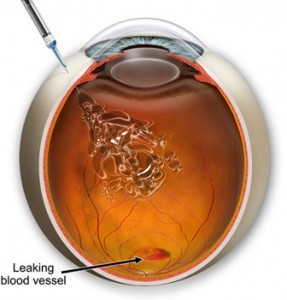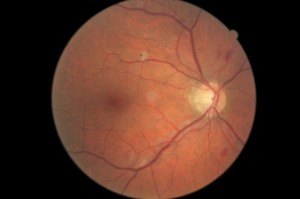This is a continuation of my last blog post about diabetic retinopathy. I want to stress that diabetic retinopathy is the number 1 cause of new cases of blindness for adults 20-70 years old. The increasing number of people with diabetes means the number of people who will develop diabetic retinopathy will also increase. This is significant because severe vision loss can be prevented 90% of the time.
It is my job as an optometrist to identify and detect diabetic retinopathy. When I see diabetic retinopathy, I have to decide when to refer for further evaluation and/or treatment.
PREVENTING VISION LOSS
The most important thing you can do to prevent vision loss from diabetes is have a dilated eye examination every year.
If you notice changes in your vision or it seems blurry, call your eye doctor immediately. To read more about preventing eye complications from diabetes click here.
TREATMENT
If I think treatment is indicated, I will refer you to a retinologist. A retinologist is an ophthalmologist, who treats conditions of the vitreous and retina, both effected by diabetic retinopathy. He or she will chose the best treatment option.
A laser may be used to stop blood vessels from leaking. It may also be used over a larger part of the retina to reduce the growth of abnormal blood vessels. Laser maintains sight, but the side effects can include, blind spots in the vision and reduced vision.
Corticosteroid injections into the eye provide a temporary treatment. To maintain control of the retinopathy, repeated injections are necessary every 6-8 weeks. The continued use of corticosteroids increases the risk of developing cataracts and glaucoma.
Another treatment is the injection of anti-vascular endothelial growth factor (anti-VEGF) to prevent the blood vessels from leaking. This treatment also needs to be repeated every 6-8 weeks.
(anti-VEGF) to prevent the blood vessels from leaking. This treatment also needs to be repeated every 6-8 weeks.
The retinologist will often use a combination of the above treatments to yield the best results.
Researchers continue to look for therapies with long-term results and minimal side effects.
